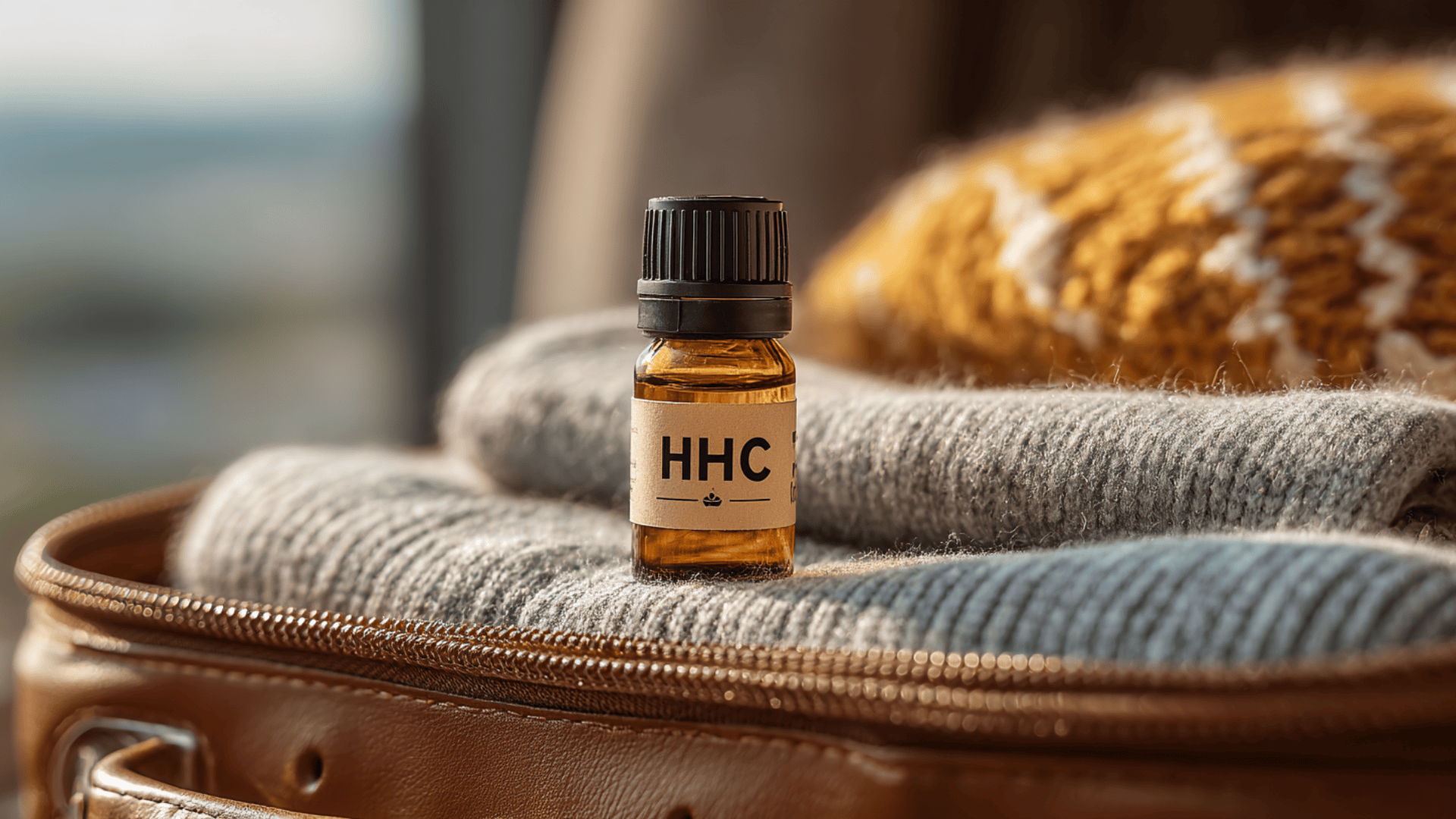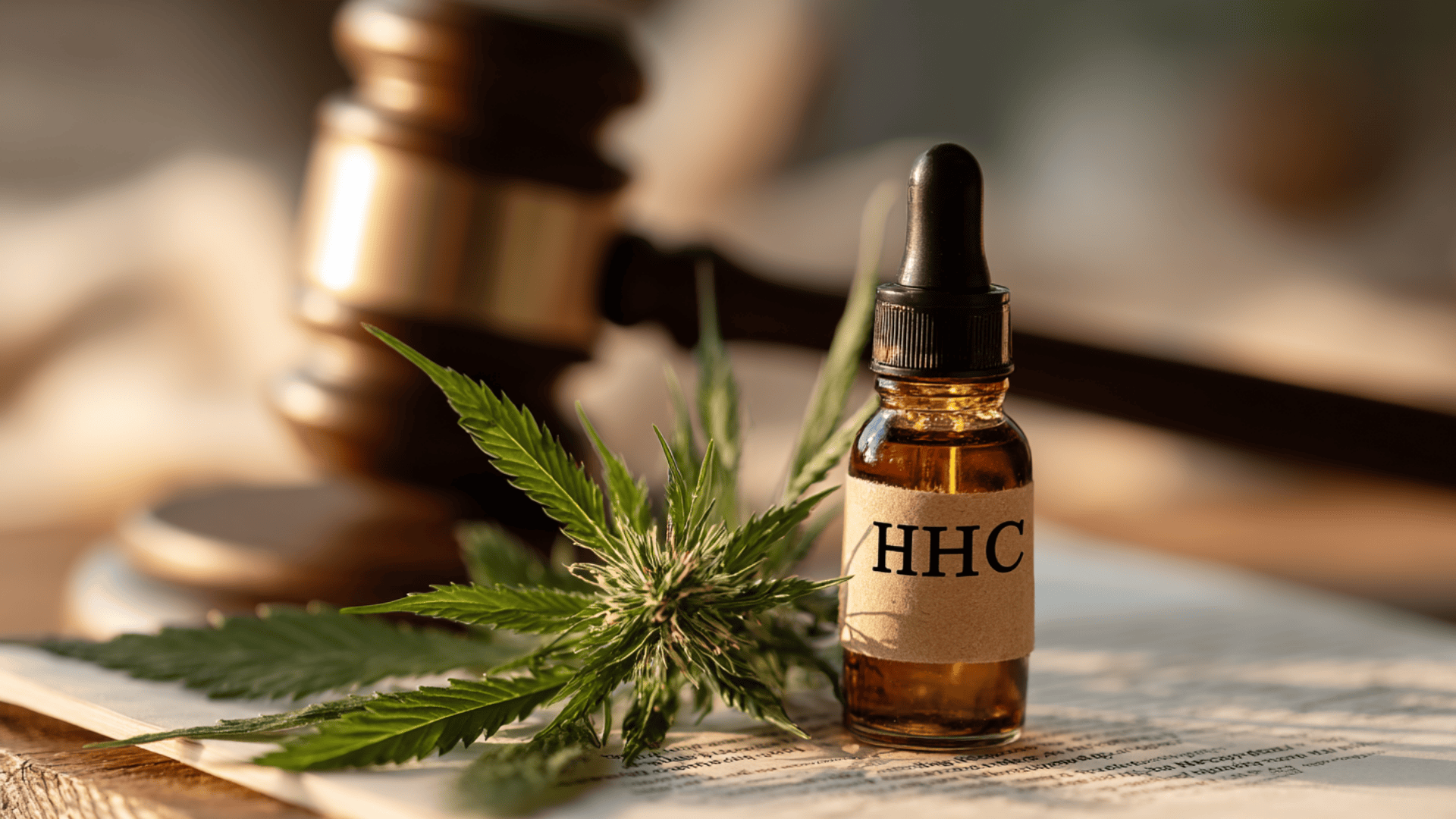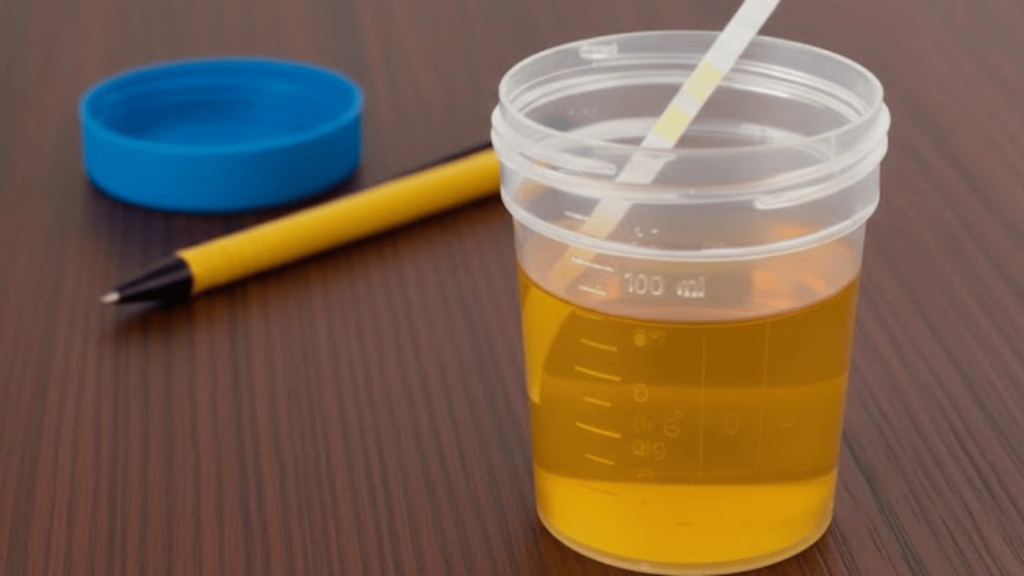You’ve probably come across the term HHC (hexahydrocannabinol) lately and wondered: Is it legal?
I’ve seen the confusion around this. Some people claim it’s fully legal, others say it’s banned or in a gray area. That’s because the laws around HHC are patchy, shifting, and vary widely depending on where you are.
Today, I’ll walk you through what HHC actually is, why its legal status is confusing, and provide the most up‐to‐date breakdown of its legality across U.S. states and around the world.
Whether you’re thinking about buying it, traveling with it, or just curious, you’ll get clarity and practical guidance.
Disclaimer: This article is for informational and educational purposes only. Laws and regulations surrounding cannabinoids vary by jurisdiction and are subject to change.
What is HHC, and Why Its Legal Status is Confusing
Let’s start with the basics: HHC stands for hexahydrocannabinol. It’s a cannabinoid, a chemical compound related to the better-known THC.
In simple terms, you take a hemp-derived cannabinoid like THC or CBD and add hydrogen atoms in a lab process (hydrogenation) to produce HHC. Because of that hydrogenation process, HHC doesn’t exactly look like typical THC molecules.
Why the confusion? Well:
- It can be derived from hemp, which is legally protected under U.S. law.
- But the fact that it’s processed, somewhat synthetic, raises questions: is it still a “hemp derivative” or is it a “synthetic cannabinoid”?
- Because the law didn’t anticipate every new cannabinoid, many states and regulators haven’t given explicit rules for HHC.
So you’re left with a situation where technically it might qualify under federal hemp law, but in practice, legality depends heavily on where you are and how the product was made and labeled.
Federal Legal Status of HHC in the United States

Let’s zoom out to the big picture: the federal level in the U.S.
Back in 2018, the Agricultural Improvement Act of 2018 (commonly called the “Farm Bill”) made hemp (defined as cannabis sativa L. withno more than 0.3% Δ-9 THC by dry weight) legal.
That included “derivatives, extracts, cannabinoids, isomers, acids, salts, and salts of isomers” from hemp.
Because of that clause, HHC could fit under that protection if it is derived from hemp, and if it meets the Δ-9 THC limit, then, in theory, HHC might be legal at the federal level under the hemp law.
However, and this is key, the federal agencies haven’t given an iron-clad rule for HHC.
The Drug Enforcement Administration (DEA) hasn’t specifically scheduled HHC by name, but there is concern that some cannabinoids may be treated as synthetic or controlled substances if they are highly processed.
So while HHC may not be illegal federally if it follows the hemp rules, it isn’t fully endorsed or neatly regulated.
In other words, at the federal level, you have a doorway open (via the hemp law) but no full certification of “yes, HHC is legal in all uses.” That’s why states step in with their own rules, and enforcement is uneven.
The result: you must check federal and your state law before you rely on legality.
State-by-State HHC Legality
Here’s where things get detailed, because states matter a lot. I’ve grouped states into Legal, Restricted/Gray, and Banned (or near-ban).
Be aware: laws are changing, so you’ll want to check the very latest updates for your state.
| State | Status | Notes (Short + Blog-Friendly) |
|---|---|---|
| Alaska | Banned | The state treats intoxicating hemp cannabinoids as controlled. |
| Arizona | Banned | HHC is classified similarly to other synthetic/intoxicating cannabinoids. |
| Arkansas | Banned | Included in statewide restrictions on intoxicating hemp derivatives. |
| California | Banned | Retail hemp rules prohibit intoxicating cannabinoids, including HHC. |
| Colorado | Banned | State restricts “intoxicating hemp products,” including HHC. |
| Delaware | Banned | HHC is treated as an illegal/intoxicating cannabinoid. |
| Idaho | Banned | One of the strictest states; HHC is considered illegal. |
| Illinois | Banned | The state prohibits hemp-derived intoxicants, including HHC. |
| Iowa | Banned | Restricts synthetic or converted cannabinoids; HHC included. |
| Maryland | Banned | State rules prohibit intoxicating hemp products such as HHC. |
| Massachusetts | Banned | Prohibits retail intoxicating hemp cannabinoids like HHC. |
| Michigan | Banned | HHC is regulated as controlled; illegal outside the licensed cannabis market. |
| Mississippi | Banned | HHC is listed as controlled; intoxicating hemp is widely prohibited. |
| Montana | Banned | Treats HHC as synthetic; prohibited for sale. |
| Nevada | Banned | HHC is categorized as controlled; intoxicating hemp is not allowed. |
| New York | Banned | The state bans THC isomers and intoxicating hemp derivatives. |
| North Dakota | Banned | Classifies HHC as a controlled substance. |
| Utah | Banned | HHC is listed among prohibited synthetic cannabinoids. |
| Vermont | Banned | Treats intoxicating hemp cannabinoids as illegal, including HHC. |
| Washington | Banned | Restricts intoxicating hemp compounds; HHC included. |
| Rhode Island | Restricted / Gray | Conflicting sources; production is limited, but some products are accessible. |
| Alabama | Legal | Allowed if hemp-derived and ≤0.3% Δ-9 THC. |
| Connecticut | Legal | Legal under hemp rules with standard testing/packaging laws. |
| Florida | Legal | Legal when hemp-derived; lawmakers are considering stricter controls. |
| Georgia | Legal | Hemp-derived HHC permitted; regulations may evolve. |
| Hawaii | Legal | Legal with restrictions on smokable/inhalable hemp forms. |
| Indiana | Legal | Hemp-derived cannabinoids are allowed under federal THC limits. |
| Kansas | Legal | Legal when ≤0.3% Δ-9 THC. |
| Kentucky | Legal | Legal under hemp rules with labeling/testing requirements. |
| Louisiana | Legal | Legal but regulated with potency limits. |
| Maine | Legal | Hemp-derived HHC is allowed with testing requirements. |
| Minnesota | Legal | Legal with edible dosage caps and age limits. |
| Missouri | Legal | Allowed under the federal 0.3% Δ-9 THC rule. |
| Nebraska | Legal | Hemp-derived HHC allowed. |
| New Hampshire | Legal | Treated as a legal hemp cannabinoid. |
| New Jersey | Legal | All hemp cannabinoids allowed when ≤0.3% Δ-9 THC. |
| New Mexico | Legal | Legal for retail sale. |
| North Carolina | Legal | Allowed; regulation of intoxicating hemp under discussion. |
| Ohio | Legal | Falls under the hemp program; legal within THC limits. |
| Oklahoma | Legal | Legal, active hemp/cannabis market. |
| Oregon | Legal | Legal but regulated; oversight on “artificially derived” cannabinoids. |
| Pennsylvania | Legal | No specific ban; treated as a hemp derivative. |
| South Carolina | Legal | Allowed under 0.3% Δ-9 THC cap. |
| South Dakota | Legal | Legal for 21+ consumers. |
| Tennessee | Legal | Allowed; state continues to refine hemp rules. |
| Texas | Legal | Generally legal; restrictions on vape forms may apply. |
| Virginia | Legal | Allowed under hemp rules with ongoing regulatory changes. |
| West Virginia | Legal | Legal within federal THC limits. |
| Wisconsin | Legal | Legal hemp cannabinoid. |
| Wyoming | Legal | Legal; minimal added restrictions. |
Note: This table is based on recent industry/legal summaries as of late 2025 and is not legal advice. Laws around intoxicating hemp products (including HHC) are changing fast, so always confirm with up-to-date local sources before buying or traveling.
Why You Must Double-Check
Just because your state allows “hemp derivatives” doesn’t always mean it allows every processed cannabinoid. Some states tie legality to “naturally occurring” vs. “synthetic” derivatives; others ban “isomers of THC” even if hemp-derived.
The legal status can change: bills are introduced, laws updated, and enforcement may differ.
Bottom line: If you use, plan to buy, or travel with HHC, check your state’s law right now. What was true last year may have shifted today.
International HHC Laws (Europe, UK, Canada, Others)
Europe & UK
In the European Union, many countries treat cannabinoids that are psychoactive as “novel foods” or controlled substances if they weren’t widely consumed before 1997. That means HHC may be restricted or require special approval. The UK has classified many novel cannabinoids under its control laws if they mimic THC.
Canada
In Canada, cannabis and its derivatives are regulated tightly. Any product with psychoactive effects must typically go through the regulated cannabis framework. That means even hemp-derived HHC is likely to fall under stricter rules or may be banned unless authorized.
Other regions
In many countries, you’ll find outright bans or laws that lag behind the new compounds like HHC. Some allow hemp with very low THC, but do not allow synthetic or hydrogenated cannabinoids.
If you’re outside the U.S., you can’t assume HHC is legal just because it’s hemp-derived. You’ll need to check the specific country’s laws or regulatory frameworks, and be especially cautious when traveling internationally with such a product.
Traveling With HHC: What You Need to Know

If you’re thinking of traveling with HHC, either across states or internationally, you’ll want to be extra careful.
1. U.S. Air Travel & TSA
The Transportation Security Administration (TSA) focuses on safety threats, not drug enforcement, but if your HHC product has more than 0.3% Δ-9 THC or violates state law, you could face issues. Airport security may flag the product, or you may run into local law enforcement.
2. Cross-Border / State Travel
Even if HHC is legal in your state, it might be illegal in the next state you drive into. That means if you bring HHC across state lines, you risk violating local law, even if you don’t mean to.
3. International Travel
Bringing HHC into or out of another country is risky — many countries treat any THC-like product as a controlled substance. Customs and border officials might seize it or charge you.
4. Best Practices
- Keep lab reports (COA) showing ≤ 0.3% Δ-9 THC.
- Keep purchase receipts and product info.
- Store the product in its original, sealed packaging.
- Avoid flying or traveling internationally with HHC unless you’ve fully checked local laws.
Staying safe means planning ahead and knowing the law in both your origin and destination.
Does HHC Show Up on a Drug Test?
If you have a job that requires drug testing, especially for THC, you’ll want to see how HHC fits in.
- HHC is chemically similar to THC and may metabolize into compounds that standard drug tests detect.
- Most common drug tests are designed to detect THC metabolites broadly, not specifically delta-9 vs HHC. That means HHC use can trigger a positive result.
- In my experience, the safest approach is: if you’re subject to screening (work, probation, sports), assume HHC could show up and act accordingly.
In short, even if HHC is legal in your state, legality doesn’t protect you from a positive drug test. Use caution if screening is relevant to your life.
HHC vs. Delta-8 and Delta-9: Legal and Chemical Differences
Here’s a simple comparison to help you understand how HHC stacks up against other cannabinoids.
| Aspect | Delta-9 THC | Delta-8 THC | HHC |
|---|---|---|---|
| Chemical Nature | Natural psychoactive compound found in cannabis. | An isomer of THC with a slightly different molecular structure. | The hydrogenated form of THC, created by adding hydrogen atoms. |
| Effect Strength | Strong psychoactive “high,” classic cannabis effect. | Milder, smoother high; often described as less anxious. | Effects fall between Delta-8 and Delta-9; more stable under heat and light. |
| Legality (U.S.) | Federally illegal except under regulated cannabis programs. | Legal under hemp laws in some states, but banned or restricted in others. | Federally gray area; legality varies by state and often depends on hemp derivation. |
| Detection on Drug Tests | Commonly detected, primary compound tests look for. | Can trigger positives for THC metabolites. | May cause false positives due to chemical similarity to THC. |
| Regulation Clarity | Clear federal restrictions. | Partial legality with varying state rules. | Most uncertain; many states classify it alongside THC isomers. |
So while HHC may appear similar to delta-8 or delta-9, its legal treatment is different and more uncertain, which is why you must check laws carefully.
How to Verify If HHC Products are Legal
When you’re ready to buy HHC (where allowed), here are things I always check, and you should too.
Lab reports (Certificate of Analysis, COA): Make sure you can see a recent third-party test showing HHC content and that Δ-9 THC is ≤ 0.3% by dry weight.
THC content: If Δ-9 THC is above 0.3%, it may fall under marijuana laws and be illegal in many states.
State compliance & brand transparency: The brand should clearly state compliance with state laws, the hemp source, manufacturing process, and batch information.
Packaging & labeling: It should include cannabinoid amounts, batch number, date, safety warnings, and age restrictions.
Taking these steps helps you avoid illegal or unsafe products and ensures that you’re buying from responsible sources.
Future of HHC Legislation
What’s next for HHC laws? From where I stand, we’re in a transitional phase.
Federal Outlook
There’s talk that the DEA might explicitly schedule certain hemp-derived cannabinoids or clarify the synthetic vs. natural distinction. Depending on how they act, HHC could face tighter rules.
State Level
Many states are drafting or updating laws now to cover “intoxicating hemp derivatives” and “isomers of THC.” Expect more bans or stricter licensing within 2025-2026. Some states may open up regulated pathways for HHC under adult-use hemp frameworks.
Why You Should Care
If you buy HHC today, the legality might change next year. Products you buy now might be legal today, but could become restricted. I recommend keeping tabs on regulatory news, industry updates, and official state bulletins.
HHC law is likely to evolve significantly in the near future. Staying informed will help you stay ahead.
Conclusion
So, is HHC legal? The answer isn’t simple. Federally, hemp-derived HHC has a possible pathway, but every U.S. state sets its own rules. Laws also vary widely outside the country, so the details depend on where you live or travel.
If you plan to buy, use, or travel with HHC, take a moment to check your local laws. Look for updated lab reports, stay alert to policy changes, and move carefully if anything seems unclear.
I recommend following a reliable legality tracker or signing up for alerts so you always know where things stand.
And if you want to keep learning, take a look at the other blogs on the site; they’ll help you stay informed and make confident choices moving forward.






